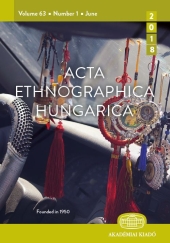Field, Data, Access. Fieldwork among the Sámi from the Perspective of Assimilation and Ethnic Revitalization Processes
Field, Data, Access. Fieldwork among the Sámi from the Perspective of Assimilation and Ethnic Revitalization Processes
Author(s): Ildikó TamásSubject(s): Cultural Anthropology / Ethnology
Published by: Akadémiai Kiadó
Keywords: Sámi; ethnicity; identity; national symbols; copyright; fieldwork
Summary/Abstract: As a result of the Sámi ethnic revitalization process, not only is the right to practicing indigenous culture controlled by local communities today, but it is also heavily disputed who can access, use, perform, interpret, and shape their culture. Recently this debate has increasingly influenced academic discourse as well. By the last decades of the 20th century, the Sámi people, similarly to other indigenous peoples, contributed to ongoing scholarly activity with their own researchers. As a consequence of this, reservations as to external (foreign) rresearchers are more and more emphatically worded. Besides differences of the motivations and opportunities of “western” vs. “indigenous” science, epistemological problems also occur, due to varying world views and categories derived from differing practices of experiences, as well as to a scepticism as to the existence of authentic translation. In this way the relation of researcher and field site cannot be merely restricted to data collection and interpretation. Data processing, publication of findings and presentation of achievements for the scholarly elite of informants and the studied community are also of importance.
Journal: Acta Ethnographica Hungarica
- Issue Year: 63/2018
- Issue No: 2
- Page Range: 377-394
- Page Count: 18
- Language: English
- Content File-PDF

